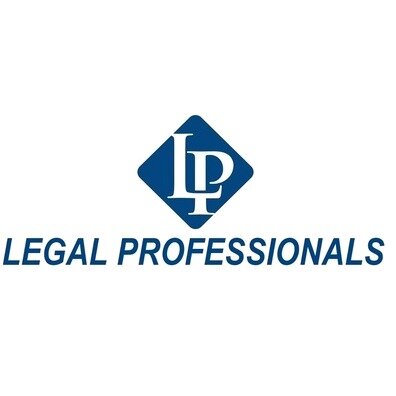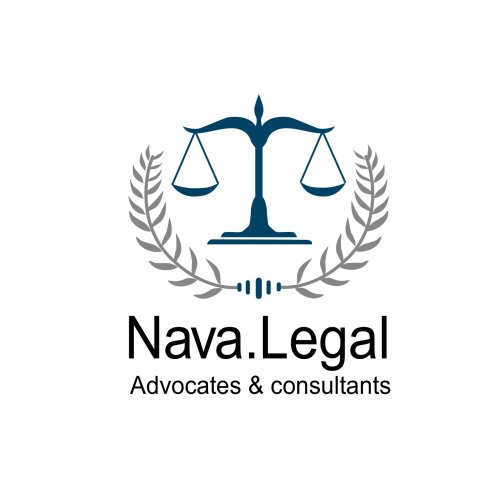Best Education Law Lawyers in Mumbai
Share your needs with us, get contacted by law firms.
Free. Takes 2 min.
List of the best lawyers in Mumbai, India
About Education Law in Mumbai, India
Education law in Mumbai, as part of the broader legal framework in India, governs the system of education within the state of Maharashtra. It encompasses various aspects such as the rights of students and educators, school policies, the establishment and management of educational institutions, and regulations concerning curricula. The legal structure is informed by national laws, state regulations, and policies implemented by educational boards and government bodies. The goal is to ensure the provision of quality education while safeguarding the rights and responsibilities of all stakeholders involved.
Why You May Need a Lawyer
There are several scenarios where you might need legal assistance in education law:
- If you are facing discrimination or harassment in an educational setting.
- When dealing with issues related to student rights and disciplinary actions.
- For help with compliance and regulatory issues if you are part of an educational institution's administration.
- If you're involved in disputes over school policies or the allocation of resources.
- When seeking advice on legal obligations regarding special education needs.
- If there are issues concerning admission or expulsion practices of educational institutions.
Local Laws Overview
Mumbai, under the Maharashtra state educational framework, abides by key statutes such as the Right of Children to Free and Compulsory Education (RTE) Act, the Maharashtra Educational Institutions (Prohibition of Capitation Fee) Act, and regulatory guidelines established by bodies like the Maharashtra State Board of Secondary and Higher Secondary Education. These laws dictate school operations, admission policies, discrimination prevention, student rights, and the prohibition of illegal fees, thus ensuring equitable access to education and transparent governance of educational institutions.
Frequently Asked Questions
What is the RTE Act?
The RTE Act (Right of Children to Free and Compulsory Education Act) mandates free and compulsory education for children aged 6 to 14 in India. It sets standards for schools, teacher-student ratios, and school infrastructure.
Are there laws against discrimination in schools?
Yes, there are specific regulations that prohibit discrimination in schools based on caste, creed, gender, religion, or economic background. These laws aim to ensure equality and fairness in educational institutions.
What are capitation fees, and are they legal?
Capitation fees are unauthorized fees charged by some educational institutions for admission. In Maharashtra, such practices are prohibited under the Maharashtra Educational Institutions (Prohibition of Capitation Fee) Act.
How are special education needs addressed?
Special education is governed by both the RTE Act and policies outlined by the Ministry of Social Justice and Empowerment. Schools are required to accommodate and support students with disabilities, ensuring access to adequate resources and tailored educational programs.
What should I do if my child is facing bullying at school?
Schools in Mumbai are required to have anti-bullying policies in place. You should report any incidents to school authorities and, if necessary, consult with legal experts to ensure your child's rights are protected.
Can I challenge a school's decision regarding expulsion or suspension?
Yes, decisions regarding expulsion or suspension can be legally challenged if they seem unjust or in violation of established protocols. It is advisable to seek legal advice to navigate the situation appropriately.
What role do Parent-Teacher Associations (PTA) play in schools?
PTAs act as a bridge between parents and school administration. They help in decision-making processes regarding school policies, resource allocation, and educational initiatives, ensuring transparent and inclusive governance.
How are private schools regulated compared to public schools?
Private schools in Mumbai are required to adhere to state regulations like any government-run school, with additional guidelines specific to private institutions ensuring non-exploitative practices regarding admissions and fees.
What kind of legal obligations do educational institutions have?
Institutions have a range of legal obligations including adherence to curriculum standards, maintaining teacher-student ratios, ensuring safe and conducive learning environments, and protecting the rights of students and staff.
Is homeschooling legal in Mumbai?
Homeschooling is not specifically defined under Indian law, but it is generally accepted as long as it adheres to the basic educational standards set by authorities. Parents opting for homeschooling should ensure their children meet educational milestones.
Additional Resources
For further assistance, individuals can reach out to the following organizations:
- The Maharashtra State Commission for the Protection of Child Rights (MSCPCR)
- Ministry of Human Resource Development (MHRD)
- District and State Educational Offices
- National Commission for Protection of Child Rights (NCPCR)
- Legal Aid Services under the Maharashtra State Legal Services Authority
Next Steps
If you find yourself in need of legal assistance in education law in Mumbai, consider the following steps:
- Identify the specific legal issue or concern with clear documentation of events.
- Consult with a specialized education lawyer who understands local and national educational laws.
- Engage with local legal aid services if you require free or low-cost legal guidance.
- Participate in workshops or seminars on education law to stay informed of any legal updates or changes.
Lawzana helps you find the best lawyers and law firms in Mumbai through a curated and pre-screened list of qualified legal professionals. Our platform offers rankings and detailed profiles of attorneys and law firms, allowing you to compare based on practice areas, including Education Law, experience, and client feedback.
Each profile includes a description of the firm's areas of practice, client reviews, team members and partners, year of establishment, spoken languages, office locations, contact information, social media presence, and any published articles or resources. Most firms on our platform speak English and are experienced in both local and international legal matters.
Get a quote from top-rated law firms in Mumbai, India — quickly, securely, and without unnecessary hassle.
Disclaimer:
The information provided on this page is for general informational purposes only and does not constitute legal advice. While we strive to ensure the accuracy and relevance of the content, legal information may change over time, and interpretations of the law can vary. You should always consult with a qualified legal professional for advice specific to your situation.
We disclaim all liability for actions taken or not taken based on the content of this page. If you believe any information is incorrect or outdated, please contact us, and we will review and update it where appropriate.
















